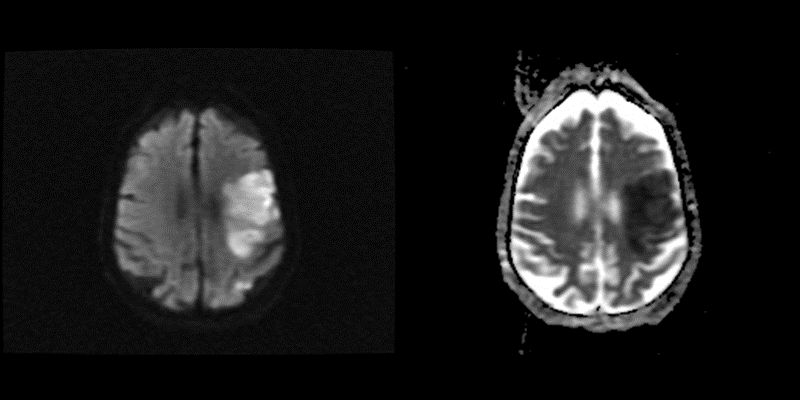MRI-APPARENT DIFFUSION COEFFICIENT MAPS (ADC)
SUMMARY
1. Apparent diffusion coefficient maps (ADC) are images representing the actual diffusion values of the tissue without T2 effects.
2. They are therefore much more useful, and objective measures of diffusion values can be obtained, however they are much less pretty to look at. They appear basically as grayscale inverted DWI images.
3. They are relatively low resolution images with the following appearances:
- Grey matter: intermediate signal intensity (grey)
- White matter: slightly hyperintense compared to grey matter
- CSF: high signal (white)
- Fat: little signal due to paucity of water
- Other soft tissues: intermediate signal intensity (grey)
4. Acute pathology (ischaemic stroke, cellular tumour, pus) usually appears as decreased signal denoting restricted diffusion.

Image: The above images are of DWI sequence (left) and corresponding ADC mapping (right) of the same region of brain. This demonstrates an ischemic infarct.
Reference(s)
Furman, Michael B., and Leland Berkwits. Atlas of Image-Guided Spinal Procedures. Elsevier, Inc, 2017.
Horowitz AL. MRI Physics for Physicians. Springer Science & Business Media. (1989) ISBN:1468403338.
Mangrum W, Christianson K, Duncan S et-al. Duke Review of MRI Principles. Mosby. (2012) ISBN:1455700843.